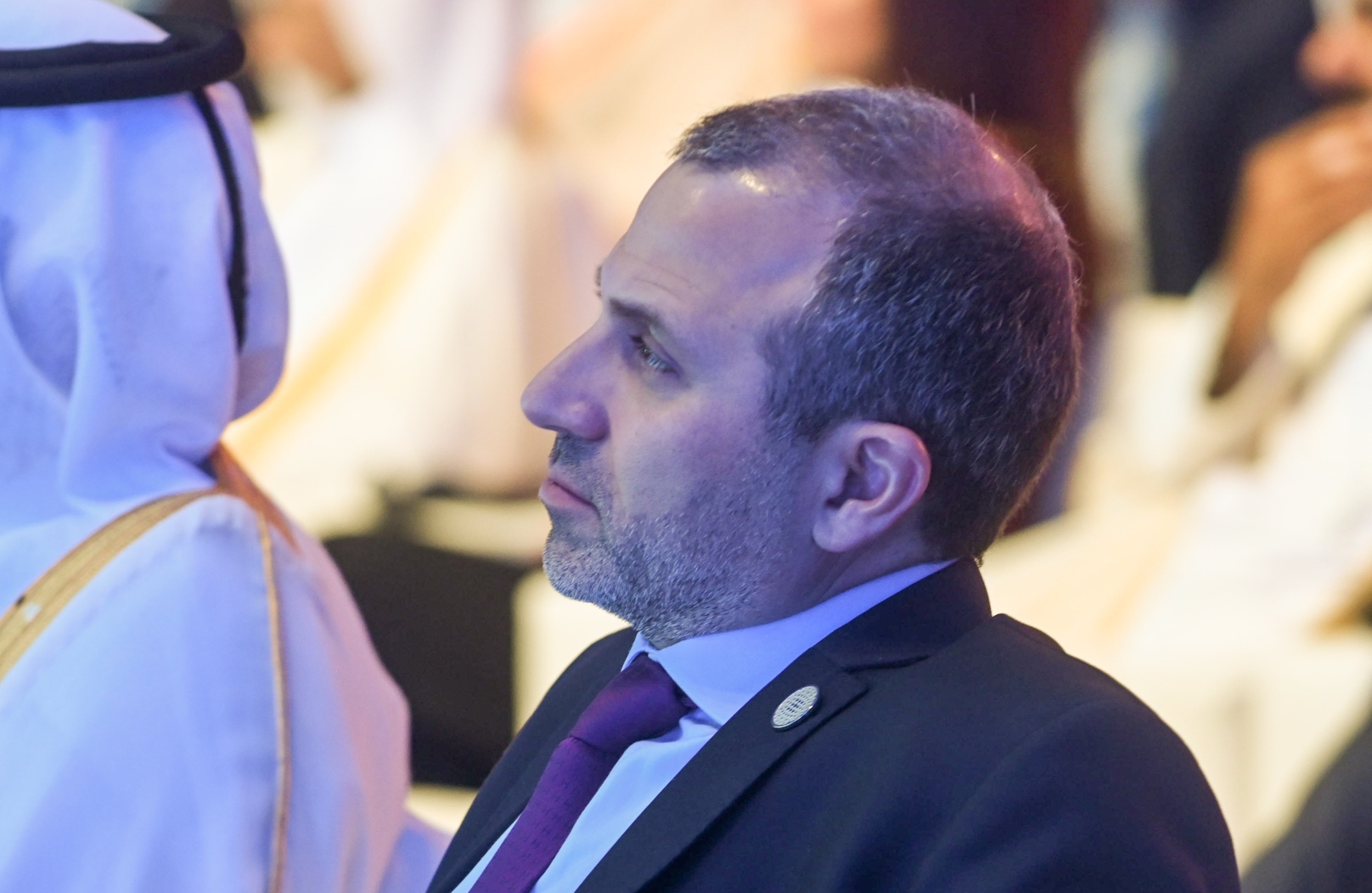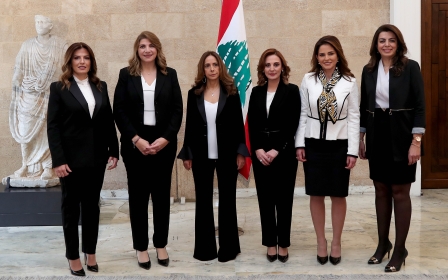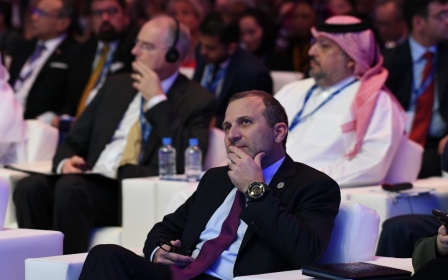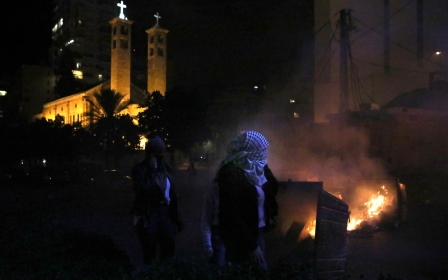Davos grilling of former minister Bassil leaves Lebanese split

An interview-turned-roasting of Lebanon’s former Foreign Minister Gebran Bassil in the Swiss town of Davos has been both welcomed and criticised by Lebanese for being well-deserved yet unprofessional.
Bassil’s participation at the World Economic Forum has been met with widespread criticism from the Lebanese public, who view the head of the Free Patriotic Movement (FPM) party as a major figure from a political class they have been protesting against since 17 October.
At a panel entitled "The return of Arab unrest", attended by former UN Special Coordinator on Lebanon Sigrid Kaag, Bassil faced what many considered a humiliating grilling by CNBC news anchor and moderator Hadley Gamble.
Both Gamble and Kaag were unrelenting and made no effort to conceal their disapproval of Bassil, Lebanese President Michel Aoun’s son-in-law, nor the Lebanese political makeup.
The news anchor alluded that Lebanon’s ruling parties’ patchwork policy that has led to the country's economic downfall and their refusal to abdicate power were signs of “moral bankruptcy”.
Stay informed with MEE's newsletters
Sign up to get the latest alerts, insights and analysis, starting with Turkey Unpacked
Gamble expressed scepticism when Bassil said he flew to Davos on his own expenses.
“Don’t ministers make like $5,000 a month? How does one charter a plane on $5,000 a month?” she asked.
Bassil said his trip was not funded by Lebanese tax money but by a friend, eliciting a straight-faced comment from Kaag – now Dutch trade minister – that government officials are not allowed to have friends like that in the Netherlands.
The panel-turned-interrogation lasted for almost an hour and was unlike typical panels and events that take place at the snowy Swiss town.
“The only solution is to form a government,” a cornered Bassil said in response to criticisms of the newly appointed cabinet. “How can you run a country without a government?”
Since 17 October, Lebanon has faced ongoing countrywide protests against the country’s entrenched ruling political parties, sparked by worsening socioeconomic conditions and a currency crisis that has led to unregulated inflation.
Prior to the event, FPM Vice President May Khreiche called Gamble and the campaign opposing Bassil's intervention in Davos “Zionist”, tweeting a photo of the CNBC journalist with former Israeli Prime Minister Shimon Peres. Bassil’s office did not respond to Middle East Eye’s inquiries.
Gamble brought up Khreiche’s accusation in passing with Bassil. Despite the quarrelling campaigns, Bassil said he felt that he had a right to be there.
Campaigns that endorsed the ex-foreign minister “trended [highest] by far on social media”, he alleged, adding that once the people decide that someone is no longer legitimate, “we step aside”. “That is the beauty of our country,” he added.
While many applauded Gamble’s hard-hitting questions on topics such as corruption, Lebanon’s energy sector, and crumbling infrastructure, others criticised her style as being patronising and condescending despite their stated opposition to Bassil.
Many Lebanese said the country's journalists should be similarly uncompromising in their interviews of politicians.
Another viewer expressed frustration over Gamble's apparent double standards, as she conducted an interview with Saudi Minister of Foreign Affairs Adel Jubeir deemed far less pointed - comparing her to a Lebanese journalist known for his double standards vis-a-vis politicians.
Some Lebanese viewed Gamble’s eye-rolls and unimpressed facial expressions, which were turned into memes minutes after the interview, as patronising and belittling.
Bassil has claimed on numerous occasions since the onset of the uprising in Lebanon that he is the victim of a politicised character assassination.
During the interview, he hinted that he knew Gamble had “intentions” to unfairly target him in her panel.
For some Lebanese, like writer and translator Lina Mounzer, they wanted to peel back all the political and social layers that came with the event and just enjoy the moment.
Mounzer told MEE it was a nice change to see someone from Lebanon’s political elite “treated with the same open disdain and contempt with which they treat us”.
While admitting that other interviews conducted by Gamble, with Jubeir on Thursday and former Lebanon Prime Minister Saad Hariri last year, were “not given the same treatment”, Mounzer felt that it was important to focus on this particular moment.
“All of the things he said about Syrians, the way he so shamelessly benefits from the nepotism…[going] after people who say bad things to him on Facebook,” she explained. “[The] schadenfreude was wonderful.
“I don’t need to endorse Hadley Gamble as a person, embrace her politics, or agree with her,” Mounzer said. “But let me take some pleasure [in this].”
Middle East Eye delivers independent and unrivalled coverage and analysis of the Middle East, North Africa and beyond. To learn more about republishing this content and the associated fees, please fill out this form. More about MEE can be found here.




